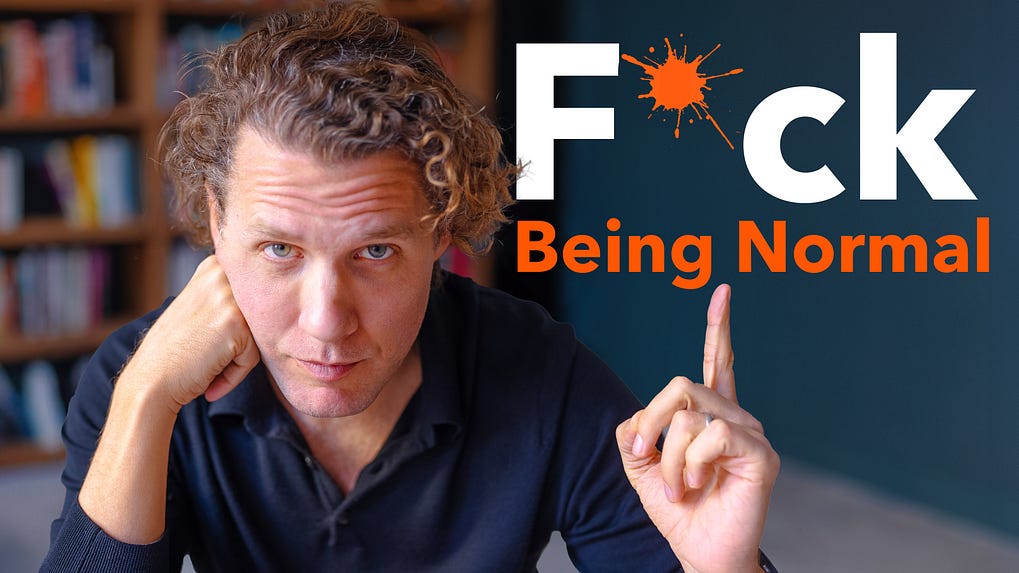Doing research 进行研究
Some generic advice for PhD students
一些针对博士生的通用建议
The loss of structure 结构的丧失
In between your second and third year of the PhD program, most students experience a dramatic loss of structure.
在博士项目的第二年和第三年之间,大多数学生会经历结构的剧烈丧失。
By structure I mean guidance about what to do, when to do it, and how well you are doing at it. During your first two years, your teachers give you problem sets and tell you when to turn them in; they tell you when tests will be and what to study for them; they will grade your work. After second year, this structure largely disappears. All of a sudden, you become the one responsible not only for doing the work, but also for figuring out what needs to be done.
通过结构,我指的是关于该做什么、何时做以及你做得如何的指导。在你头两年里,你的老师会给你问题集,并告诉你何时提交;他们会告诉你考试的时间以及该为考试学习什么;他们会给你的作业打分。到了第二年后,这种结构基本上消失了。突然间,你不仅要负责完成工作,还要负责弄清楚需要做什么。
You should know that most people experience transitions like this to some extent during their careers. An individual contributor who gets promoted to middle management, for example, suddenly becomes responsible not for doing what (s)he is told but instead for figuring out what others need to do. The transition seems to be particularly abrupt and challenging for PhD students, however, especially if you have not experienced periods of being largely self-directed in your earlier work.
你应该知道,大多数人在职业生涯中在某种程度上都会经历这样的过渡。例如,一个被提升到中层管理的个人贡献者,突然变得不再负责执行他/她被告知的任务,而是要弄清楚其他人需要做什么。然而,对于博士生来说,这种过渡似乎特别突然和具有挑战性,尤其是如果你在早期工作中没有经历过大部分自我指导的时期。
It is helpful to prepare for this transition both cognitively and emotionally.
在认知和情感上为这一过渡做好准备是有帮助的。
Creating structure: goals vs systems
创建结构:目标与系统
PhD students tend to be fairly goal-oriented, and to have at least a basic idea of their main goal for the last 3(+) years of the program: write a good job market paper and get a good job. It can be tempting to focus on this goal, and try to backsolve from it to figure out the path by which you can reach it. I think there are two problems with this approach.
博士生往往目标明确,并且对他们在项目最后三年(或更长时间)的主要目标有至少基本的认识:写一篇好的求职论文并找到一份好工作。专注于这个目标,并试图从中推导出实现它的路径是很诱人的。我认为这种方法有两个问题。
First, thinking constantly about the end goal can be daunting. When you see the creativity and polish of other people’s job market papers, you may feel hopeless — how could ever get from where you are now to producing something that impressive?
首先,不断思考最终目标可能会让人感到畏惧。当你看到其他人的求职论文的创造力和精致程度时,你可能会感到绝望——你怎么可能从现在的状态走到制作出如此令人印象深刻的作品呢?
Second, for most people the creative process seems to be far from linear. That is, while you might wish that you could identify a series of steps A, B and C which if you take them in order will reliably yield a good job market paper, this is largely just that: a wish. For most people there seems to be no such linear algorithm.
其次,对于大多数人来说,创造过程似乎远非线性。也就是说,虽然你可能希望能够识别出一系列步骤 A、B 和 C,如果按顺序进行,就能可靠地产生一篇好的市场论文,但这在很大程度上只是一个愿望。对于大多数人来说,似乎没有这样的线性算法。
An alternative way to create structure is to focus on your system. By system I mean the habits and routines you develop and practice on a regular basis. For example, attending the seminar each week, writing down three suggestions for ways to improve the paper, and meeting afterwards with a classmate to discuss your ideas is a practice you might incorporate into your system. In designing your system, your aim is to give yourself a high probability of eventually accomplishing your ultimate goal (come up with a great job market paper) even though you cannot predict with any certainty the sequence of events through which this will come about.
创建结构的另一种方法是关注你的系统。这里的系统是指你定期发展和实践的习惯和例程。例如,每周参加研讨会,写下三条改进论文的建议,并在之后与同学讨论你的想法,这是一种你可以纳入系统的实践。在设计你的系统时,你的目标是给自己一个高概率,最终实现你的终极目标(提出一篇出色的求职市场论文),尽管你无法确定这一过程中的事件顺序。
You should of course think periodically about ways to improve your system, but you also need to trust in it to some extent: believe that if you are doing the right things day-to-day, this is putting you in a good position to eventually achieve your goal. This can help to reduce the feeling of being overwhelmed by the remaining distance to your ultimate goal.
当然,你应该定期考虑改善系统的方法,但你也需要在某种程度上信任它:相信如果你每天都在做正确的事情,这将使你处于一个良好的位置,最终实现你的目标。这可以帮助减少对最终目标剩余距离的压倒感。
Specifics vary, but most people find that regular conversation both with fellow students and with faculty advisors is an important part of their system, both to make progress and to stay grounded and happy.
具体情况有所不同,但大多数人发现,与同学和导师的定期交流是他们系统中一个重要的部分,这既有助于进步,也有助于保持脚踏实地和快乐。
A three-buffer system 三缓冲系统
“Creativity” often seems to involve noticing connections between things that others had not seen, or had previously seen as unconnected. I find it helpful to think about building systems that give you opportunities to notice these connections. In particular, I think in terms of giving myself opportunities to notice connections between three categories of things.
“创造力”往往涉及到注意到其他人未曾看到的事物之间的联系,或者之前认为没有联系的事物之间的联系。我发现思考建立能够让你注意到这些联系的系统是很有帮助的。特别是,我认为应该给自己提供机会去注意三类事物之间的联系。
The first category is the state of the conversation in your field. What questions are other people asking? What questions are they not asking? What things do they believe have been proven? What implicit assumptions are they making? What do they see as the big challenges in making further progress?
第一类是你所在领域的对话状态。其他人问了什么问题?他们没有问什么问题?他们认为哪些事情已经被证明?他们有哪些隐含的假设?他们认为在进一步进展中面临的重大挑战是什么?
The second category is reality. What is in fact actually happening in the real world in the area you want to study? What decisions are people making? How is their environment changing, and why? What facts or patterns seem important or surprising to you?
第二类是现实。在你想研究的领域中,实际上发生了什么?人们正在做出什么决策?他们的环境在如何变化,为什么?哪些事实或模式对你来说似乎重要或令人惊讶?
The third category is research opportunities. What datasets exist that might be useful in your area of work? What natural experiments exist that you could potentially use to examine causal relationships? What partners in the public or private sector might potentially be interested in collaborating with you?
第三类是研究机会。有哪些数据集可能对你的工作领域有用?有哪些自然实验可以用来研究因果关系?公共或私营部门中有哪些合作伙伴可能对与你合作感兴趣?
At the end of the day, I think most good research ideas involve finding connections between these things — identifying a research opportunity to demonstrate something about reality that advances the conversation in your field. The key idea is that in order to put yourself in a good position to spot these connections, you need to load information about each into memory to give your brain the opportunity to connect the dots.
在一天结束时,我认为大多数好的研究想法都涉及找到这些事物之间的联系——识别一个研究机会,以展示关于现实的某些内容,从而推动你所在领域的对话。关键在于,为了让自己处于一个良好的位置去发现这些联系,你需要将每个信息加载到记忆中,以便让大脑有机会将这些点连接起来。
This exercise is non-linear in the sense that you do not learn about things because you know you will need them, but rather because knowing them increases the number of potential connections you could spot in the future as you learn other things. For example, you may learn about an available dataset today and see no immediate way of using it, but then months later have a question about a paper you are reading and recollect that there was a variable in that dataset that you could use to address it.
这个练习是非线性的,因为你并不是因为知道自己将需要某些东西而学习它们,而是因为了解它们可以增加你在未来学习其他事物时可能发现的连接数量。例如,你今天可能会了解一个可用的数据集,但看不到立即使用它的方式,但几个月后你在阅读一篇论文时有了一个问题,并回忆起那个数据集中有一个变量可以用来解决这个问题。
To fill your three memory buffers, you need to build practices for each. For example, you might learn about the state of the research conversation by regularly reading and taking notes on papers, by regularly attending seminars or conferences, etc. You might learn about what is happening in the “real world” by reading more descriptive work (e.g. ethnography), by having lunch once a month with someone working in a relevant area (e.g. the CFO of a company, if you are studying corporate finance), by attending practitioner events, etc. And you might learn about research opportunities by conducting systematic reviews of legal reforms, networking to certain types of organizations with whom you are interested in partnering, etc. The key thing is to do these on a regular, disciplined basis and not abandon your practices simply because they do not immediately lead to a great insight. Instead, think of this process as a long-term investment, filling your memory buffers and giving your mind more opportunities to make connections.
要填充你的三个记忆缓冲区,你需要为每个缓冲区建立实践。例如,你可以通过定期阅读和记录论文、定期参加研讨会或会议等方式了解研究对话的状态。你可以通过阅读更多描述性的工作(例如人种志)、每月与在相关领域工作的人共进午餐(例如,如果你在研究公司财务,可以与公司的首席财务官共进午餐)、参加从业者活动等方式了解“现实世界”中发生的事情。你还可以通过对法律改革进行系统评审、与你感兴趣的某些类型的组织建立网络等方式了解研究机会。关键是要定期、严格地进行这些活动,而不是因为它们没有立即带来重大见解就放弃你的实践。相反,把这个过程视为一种长期投资,填充你的记忆缓冲区,并为你的思维提供更多的机会来建立联系。
Making connections 建立联系
The actual process of making connections is the most mysterious part of the creative process. Most people find they cannot force it, and only become frustrated and disappointed with themselves if they try. That said, I think there are a few practices you can build into your system that likely help.
建立联系的实际过程是创造过程中最神秘的部分。大多数人发现自己无法强迫它,如果尝试的话,只会感到沮丧和失望。话虽如此,我认为有一些实践可以融入你的系统中,这可能会有所帮助。
One is synthesis. As you examine some new thing, ask — what is the bottom line? What is truly unusual about this? Etc. Keep brief notes on these things (partly for future reference, but largely because the discipline of writing them will increase retention in memory).
一个是综合。当你审视一些新事物时,问——底线是什么?这有什么真正不同寻常的地方?等等。对这些事情做简要记录(部分是为了将来参考,但主要是因为写下它们的过程会增加记忆的保持)。
Another is conversation. Talk with fellow students about what you are seeing, thinking, etc. The act of verbalizing our thoughts often helps us to better understand them ourselves, and the back-and-forth of conversation can help us draw more interesting and indirect connections — speaker 1 connects A to B, then speaker 2 connects B to C, etc.
另一个是对话。与同学谈论你所看到的、思考的等。将我们的想法用语言表达出来的行为通常有助于我们更好地理解它们,而对话的互动可以帮助我们建立更有趣和间接的联系——说话者 1 将 A 与 B 连接,然后说话者 2 将 B 与 C 连接,等等。
A third is sleep. There seems to be pretty good lab evidence that the brain does some of its most creative connection-finding while you are asleep, and particularly during REM sleep. This is why dreams often involve strange, unusual or unrealistic combinations of ideas. Give yourself the opportunity to get a good night of sleep every night.
三分之一是睡眠。似乎有相当好的实验室证据表明,大脑在你睡觉时,特别是在快速眼动睡眠期间,会进行一些最具创造性的连接发现。这就是为什么梦常常涉及奇怪、不寻常或不现实的想法组合。给自己机会每晚都能睡个好觉。
Failing fast 快速失败
Once you have identified a potential research idea, a key parameter is the speed with which you discover whether it is in fact worth working on it to completion (i.e. a finished paper) or discarding it and moving on.
一旦你确定了一个潜在的研究想法,一个关键参数是你发现它是否值得继续完成(即一篇完成的论文)或放弃并继续前进的速度。
To see this, suppose that one in five of your reasonably serious research ideas ends up being worth writing a paper about; this seems like a pretty typical “hit rate” for many students. Imagine that you take every “bad” idea 25% of the way to completion before you discard it; then to write one finished paper you have to do the work of writing two finished papers — 1x100% on the paper you actually write, and 4x25% on the four papers you do not. Now imagine that you take each “bad” idea 50% of the way to completion; you would have to do the work of three papers to produce one actual paper. You get the idea. The upshot is that if a project is going to fail you want it to “fail fast” so you can move on to something better.
要看到这一点,假设你五分之一的合理严肃研究想法最终值得写成论文;这似乎是许多学生的一个相当典型的“命中率”。想象一下,你将每个“坏”想法推进 25%到完成,然后再放弃;那么要写一篇完成的论文,你必须完成两篇完成论文的工作——在你实际写的论文上 100%工作 1 次,在你不写的四篇论文上 25%工作 4 次。现在想象一下,你将每个“坏”想法推进 50%到完成;你必须完成三篇论文的工作才能产生一篇实际的论文。你明白这个意思。结果是,如果一个项目注定要失败,你希望它“快速失败”,这样你就可以转向更好的事情。
One practice that can help you fail fast is to meet regularly with an advisor or a fellow student to run through new research ideas and get rapid feedback on them. Which have limited upside and should be discarded immediately? Which are worth further exploration? Which are good enough to become your primary focus?
一个可以帮助你快速失败的做法是定期与顾问或同学会面,讨论新的研究想法并获得快速反馈。哪些想法的潜力有限,应该立即放弃?哪些值得进一步探索?哪些足够好,可以成为你的主要关注点?
Another helpful discipline is to identify and test a new project’s fatal weaknesses first. Suppose that for a project to come together, three things would need to be true; the first two are true with probability 80%, while the third is true only with probability 20%. All else equal, you should first try to figure out whether the third thing is true or not. More than likely it is not, and once you discover this you can discard the project and move on without wasting time on the first two things. (The temptation can sometimes be to do the opposite — to spend time on the parts of the project that are likely to work and thus feel more satisfying, while holding out hope that you will find a magic solution to the seemingly insoluble problems.)
另一个有帮助的原则是首先识别和测试新项目的致命弱点。假设一个项目要成功,需要满足三个条件;前两个条件的概率为 80%,而第三个条件的概率仅为 20%。在其他条件相同的情况下,你应该首先尝试弄清楚第三个条件是否成立。很可能它并不成立,一旦你发现这一点,你就可以放弃这个项目,继续前进,而不必在前两个条件上浪费时间。(有时诱惑是做相反的事情——花时间在那些可能有效的项目部分上,从而感到更有满足感,同时抱有希望找到解决看似无解问题的魔法解决方案。)
Finding your team 寻找你的团队
In the short run, you will be focused on writing a job market paper that is both blindingly insightful and, ideally, single-authored. This is how you prove to the world beyond a shadow of a doubt that you are capable of doing great research.
在短期内,您将专注于撰写一篇既深刻又理想上是单作者的就业市场论文。这就是您向世界证明自己能够进行伟大研究的无可置疑的方法。
You should also be aware, however, that in the longer run you will (judging by the statistics) write very few if any single-authored papers. Almost all papers in economics these days are co-authored; research is a team sport. And that means that part of your task early in your career is to find your team.
然而,您还应该意识到,从长远来看,您将(根据统计数据判断)几乎不会写任何单一作者的论文。如今,几乎所有的经济学论文都是合著的;研究是一项团队运动。这意味着您职业生涯早期的一部分任务是找到您的团队。
Finding teammates with whom you work well is important for a few reasons. First, there are real technical complementarities, e.g. between someone good at negotiating data access and someone good at using it to estimate models. Second, there are less obvious forms of complementarity in personality — for example, one person may be more optimistic and carry the project through hard times, while the other is more skeptical and makes sure problems have been caught before the work gets presented. Third, some people are simply better teammates than others. Governance of research projects is essentially non-existent, and your co-authors performance (and your own success) will often depend on their personal reliability and integrity. You want to find good people to work with.
找到与你合作愉快的队友很重要,原因有几个。首先,确实存在技术上的互补性,例如,擅长谈判数据访问的人和擅长利用数据来估计模型的人之间的互补性。其次,个性上的互补性不那么明显——例如,一个人可能更乐观,能够在困难时期推动项目,而另一个人则更怀疑,确保在工作展示之前发现问题。第三,有些人就是比其他人更好的队友。研究项目的管理基本上是不存在的,你的合著者的表现(以及你自己的成功)往往取决于他们的个人可靠性和诚信。你想找到合适的人一起工作。
You should consider practices you can build into your system to help you search for potential longer-term collaborators. Try working with different classmates on relatively low-risk, early-stage projects to find out how you like working together. Observe what kinds of people you tend to work well with, and pattern match.
您应该考虑将一些实践融入您的系统,以帮助您寻找潜在的长期合作者。尝试与不同的同学合作进行相对低风险的早期项目,以了解您喜欢如何一起工作。观察您倾向于与哪些类型的人合作良好,并进行模式匹配。
Taking care of yourself 照顾好自己
Take care of yourself physically and emotionally. These things are both intrinsically important and also contribute to your success as a researcher.
照顾好自己的身体和情感。这些事情既本质上重要,也有助于你作为研究者的成功。
Consistently get enough sleep. As I mentioned above, sleep has well-documented impacts on cognitive performance including functions that are critical to research such as memory and pattern-matching. Sleep also powerfully affects mood, ability to handle stressful situations, etc. Practice good sleep hygiene and find habits that work well for you.
始终保证充足的睡眠。正如我上面提到的,睡眠对认知表现有着良好的文献记录,包括对研究至关重要的功能,如记忆和模式匹配。睡眠还会强烈影响情绪、应对压力的能力等。养成良好的睡眠卫生习惯,找到适合自己的习惯。
Seek emotional balance in your life. If your research career is the only thing that feels important or meaningful to you, your successes and failures as a researcher will drive extreme emotional highs and lows. Value and invest in other activities and relationships that help to define a more complete and balanced “you,” giving you emotional flywheels.
在生活中寻求情感平衡。如果你的研究事业是你唯一觉得重要或有意义的事情,那么作为研究者的成功与失败将会带来极端的情感高低。重视并投资于其他活动和关系,这些活动和关系有助于定义一个更完整、更平衡的“你”,为你提供情感的飞轮。
Try therapy. Seeing a therapist might sound uncomfortable or potentially embarrassing, but in fact many people regularly see a therapist and benefit from it, and in some communities it is the norm rather than the exception to regularly do so. I see a therapist at the moment to work on a problem I have waking up in the middle of the night ruminating. You can also learn about and benefit from some forms of therapy even without seeing a therapist. For example, I have picked up a number of useful practices from Cognitive Behavioral Therapy for Dummies.
尝试治疗。看心理医生可能听起来不舒服或可能令人尴尬,但实际上许多人定期看心理医生并从中受益,在某些社区,定期这样做是常态而不是例外。我目前正在看心理医生,以解决我在半夜醒来时反复思考的问题。即使不见心理医生,你也可以了解并受益于某些形式的治疗。例如,我从《傻瓜的认知行为疗法》中学到了一些有用的实践。




